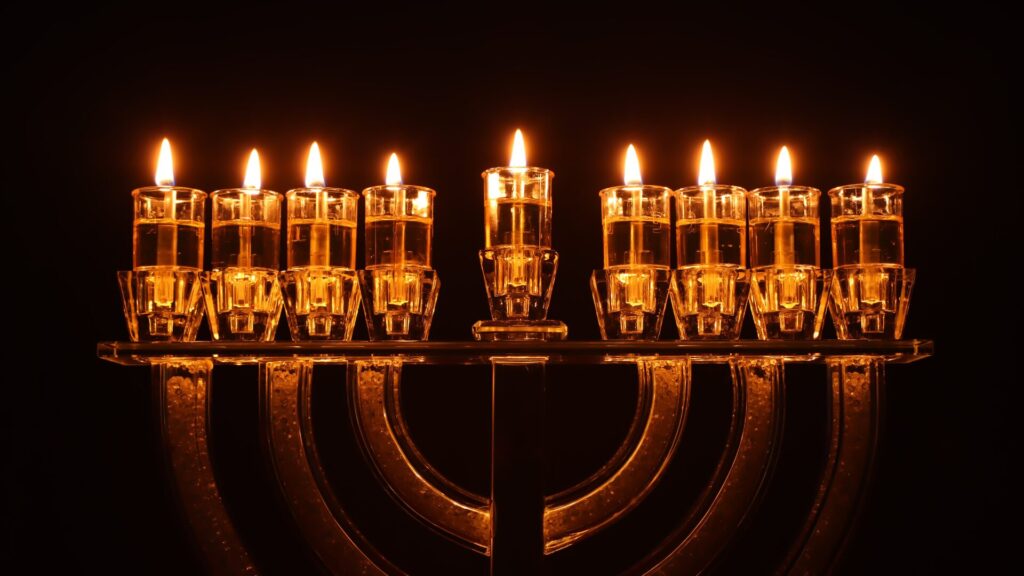I was baptised in a font set up on the stage of the Piccadilly Theatre in Perth on August 27, 1961. I was 23 years of age. By February 1962 I was at the Australasian Missionary College (now Avondale University College) with the intention of studying the Bible, as counselled by my church pastor, Des Mowday. The college required me to do an entrance test. I did well enough to commence the Bachelor of Arts (Theology) degree. “Is that the Bible?” I naively asked. “Yes,” said Dr Alwyn Salom, the faculty adviser. In fact in my first year I had only the one Bible subject, “Daniel and Revelation”; and this was providentially due to my receiving a credit for being a qualified fitter and turner. I was a very disgruntled mature-age student.
Soon after commencing my course I received a letter from one of my mother’s fellow war-widow friends, a Mrs G McLaren, whom I had known from my early childhood. Her letter was most disturbing; it disclosed that my mother thought she had lost her younger son to a cult and that she would never see him again; that he had gone off to some remote desert retreat to be brainwashed. I immediately wrote to my mother to assure her that what she had lost was her casual boarder and what she had regained instead was her loving son. I wrote to her every week while I was at college and spent every summer back home in Perth. Jesus had not taken the widow’s son; He had found him and “given him back to his mother” (Luke 7:14,15).*
At this point, the story of the “Waster Son” (Luke 15:11–32), who returned from a foreign land to his father’s house, may spring to mind. However, the prodigal was an apostate Jew turning back to his father out of desperate necessity. In contrast, I was willingly moving forward from no faith to follow Jesus, the Messiah of the Jews. Perhaps I was more like a Gentile turning for the first time to the Living God through faith in Christ. Paul states it rather well: “remember that you were at that time without Christ, being an alien from the commonwealth of Israel, and a stranger to the covenants of promise, having no hope and without God in the world. But now in Christ Jesus you who once were far off have been brought near by the blood of Christ” (Ephesians 2:12,13 personalised).
The conjunction “but now” indicates a dramatic change both in salvation-history and in the life of those “who once were far off but now were being brought near”, which admittedly is reminiscent of the Parable of the Waster Son. Indeed later Christians read the “younger brother”, as a symbol for Gentiles. This is a reasonable application, but not in the context of the world that Jesus inhabited. However, it is relevant to the environment in which the apostle to the Gentiles preached. Paul reminded the Greeks in Thessalonica how they had “turned to God from idols, to serve a living and true God, and to wait for his Son from heaven” (1 Thessalonians 1:9,10). The verb “to turn” here indicates a shift from what someone was to become someone new in Christ.
In the New Testament the supreme example of this is the inclusion of the Gentiles into the family of faith. Both Paul and Peter quote Hosea 2:23 to portray the inclusion of the Gentiles into the peoples of God: “Those who were not my people I will call ‘my people,’ and her who was not beloved I will call ‘beloved’” (Romans 9:25; 1 Peter 2:10). “And if you belong to Christ, then you are Abraham’s offspring [seed], heirs according to the promise . . . So you are no longer a slave but a child [son] and if a child [son] then also an heir, through God” (Galatians 3:29; 4:7).
Paul refers to this inclusion of the Gentiles equally with the Jews as a mystery kept secret until the preaching of the good news about Jesus the Christ: “In former generations this mystery was not made known to humankind, as it has now been revealed to his holy apostles and prophets by the Spirit: that is, the Gentiles have become fellow-heirs, members of the same body, and sharers in the promise in Christ Jesus through the gospel” (Ephesians 3:5,6). As is true of Abraham, so also of God, both are the Father of all of us (Romans 4:16): “Or is God the God of Jews only? Is he not the God of Gentiles also? Yes, of Gentiles also” (Romans 3:29). “And because we are children (sons), God has sent the Spirit of his Son into our hearts, crying, ‘Abba! Father!’” (Galatians 4:6).
Until Christ the separation of Jews from Gentiles was unchallenged for centuries but in Him they were united: “For he is our peace; in his flesh he has made both groups into one and has broken down the dividing wall, that is, the hostility between us” (Ephesians 2:14). Paul was very aware of the wider implications of this unity of faith in Christ, as we also should be. The Creator has renewed us after His own image, “where there is no longer Greek and Jew, circumcised and uncircumcised, barbarian, Scythian, slave and free; but Christ is all and in all!” (Colossians 3:11). “For in the one Spirit we were all baptised into one body—Jews or Greeks, slaves or free—and we were all made to drink of one Spirit” (1 Corinthians 12:13. See also Galatians 3:28). Frequently Paul dismisses the distinction between circumcised (Jew) and uncircumcised (Gentile) as of no spiritual importance (1 Corinthians 7:19; Galatians 5:6; 6:15; Colossians 2:11; Roman 2:28,29).
Neither those who were circumcised (Jew) when they were called, nor those who were uncircumcised (Gentile) needed to reverse that mark in their flesh. Likewise, slaves when they converted became the Lord’s freedpersons, and the freeborn, when called, became the slaves of Christ (1 Corinthians 7:18–24). This is a stark reversal of the Greco-Roman social stratification, but also of the Jewish cultural hierarchy; and I suspect it is also true of our social order.
We’ve been watching the TV series titled Australia in Colour that uses black and white archival film, now in colour, to analyse Australian culture from the first fleet until the post-war reconstruction. There is no denying our less than glorious past. The racism, the brutal treatment of the Indigenous people, the misogyny, the wealth disparity, the crass xenophobia, the limiting of higher education to the privileged, the inequality of the courts and the law, and the cultural parochialism are all exposed in this series, and now in colour.
Even today Australia is reeling from the exposure of a series of social ills:
• the widespread abuse of women even in the highest echelons of our society;
• the bullying that is rife in our schools both public and private;
• the reform of taxes that invariably favours the rich;
• the gross discrimination embedded in our society;
• the racism that simmers just below the surface;
• and the cesspool-like toxicity of our social media.
However, Christians are called to “Do all things without murmuring and arguing, so that you may be blameless and innocent, children of God without blemish in the midst of a crooked and perverse generation, in which you shine like stars in the world” (Philippians 2:14,15). So that’s it then; we are okay, really?!
Tragically, Adventist institutions and churches are not entirely free of these evils.
The transition I made long ago from being a casual lodger to becoming a committed son is one I need to make every day, but at an even more profound level. As Paul reminds us often enough, we are not to follow the world’s standards: “Do not be conformed to this world, but be transformed by the renewing of your minds, so that you may discern what is the will of God—what is good and acceptable and perfect . . . Let love be genuine; hate what is evil, hold fast to what is good; love one another with mutual affection; outdo one another in showing honour . . . Rejoice in hope, be patient in suffering, persevere in prayer. Contribute to the needs of the saints; extend hospitality to strangers . . . Live in harmony with one another; do not be haughty, but associate with the lowly; do not claim to be wiser than you are. Do not repay anyone evil for evil, but take thought for what is noble in the sight of all. If it is possible, so far as it depends on you, live peaceably with all” (Romans 12:2, 9,10, 12,13, 16–18).
By God’s grace let us love one another in our diversity, as God in Christ has loved us (John 13:34; 15:12; 1 John 4:11); let us love our partners in a fractured world, just as Christ loved the church and gave Himself up for her (Ephesians 5:25); let us forgive one another in our flawed state, as He has forgiven us (Ephesians 4:32; Colossians 3:13); let us accept one another in our multiplicity, as He has accepted us (Romans 15:7 NLT); and let us bear one another’s burdens in our weaknesses, as He has borne our sins on the cross (Galatians 6:2; 1 Peter 2:24). Let us all continue to make this transition to Christ and His ways.






